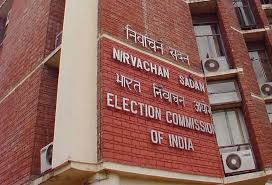In a landmark move, the Bihar State Election Commission on Friday announced that the state is set to become the first in India to allow voting through a mobile app. This announcement, made by State Election Commissioner Deepak Prasad, comes ahead of municipal council elections scheduled for June 29 across Patna, Rohtas, and East Champaran.
The decision is being hailed as a significant step in leveraging technology to expand democratic participation, particularly among citizens unable to reach polling booths. Prasad assured that the system is designed to be “tamper-proof,” with advanced features such as blockchain, facial recognition, and audit trails. While this initiative is currently limited to select local bodies, it has raised hopes that such digital voting could be expanded to the upcoming state assembly elections. If successful, Bihar’s digital experiment could serve as a model for other states aiming to enhance voter access while maintaining electoral integrity.
When Did the Idea Begin? The Evolution of App-Based Voting
The concept of home-based or remote voting via mobile apps has been discussed at various levels by the Election Commission of India for years, especially to accommodate NRIs and migrant voters. However, Bihar is the first state to translate the concept into implementation at the local level. The groundwork for this initiative began months ago, with the Bihar State Election Commission partnering with the Centre for Development of Advanced Computing (C-DAC) to design a secure mobile voting platform. A voter awareness campaign was also launched from June 10 to 22 to ensure proper understanding of the system. The app e-SECBHR was created exclusively for this purpose and made compatible with Android phones, allowing voters to link it with the phone number registered to their voter ID.
Who Can Use This Facility? A Relief for the Disenfranchised
The mobile voting system has been specifically developed for voters who are unable to physically visit polling booths. According to Commissioner Deepak Prasad, eligible users include senior citizens, differently abled individuals, pregnant women, and migrant workers. This move is expected to empower tens of thousands of citizens whose votes might otherwise go uncounted due to mobility issues or geographic displacement. In fact, nearly 10,000 voters have already registered for e-voting, and another 50,000 are expected to join the digital platform.
For those without smartphones, the commission has also provided the option of e-voting through its official website. Only two registered voters are permitted per mobile number, and each vote is validated against the voter ID to ensure authenticity.
EC’s Assurance on Tamper-Proof Voting
Addressing concerns over potential fraud or manipulation, the Election Commission has emphasized the robust security framework integrated into the system. The app includes blockchain technology for tamper-proof record keeping, facial matching and scanning features to verify voter identity, and an electronic audit trail similar to the VVPAT used with EVMs in state and national elections.
These measures are designed to maintain both transparency and security. “The system has been made fool-proof with several layers of verification,” said Prasad. With digital privacy concerns on the rise, the implementation of these technologies is aimed at assuring voters of the platform’s credibility and safety.
Possibilities and Precautions
While the mobile voting initiative is currently restricted to six municipal councils, its successful execution could pave the way for broader adoption during Bihar’s upcoming Assembly elections. The Election Commission has not yet confirmed whether the feature will be available statewide during the legislative polls later this year.
However, the pilot may offer valuable insights into scalability and voter response. Experts have welcomed the move but cautioned that proper checks and continuous audits will be crucial to avoid glitches or misuse. If Bihar’s model proves effective, it may prompt other states and even the central Election Commission to rethink the future of voting in India.
Digital Democracy in Motion
Bihar’s foray into mobile-based voting marks a significant milestone in Indian electoral history. By targeting sections of society traditionally sidelined from polling due to physical or logistical limitations, the initiative promises to make democracy more inclusive. The success of this tech-enabled pilot could trigger a transformation in how India votes, ushering in a new era where voter turnout is boosted not just by awareness but also by accessibility. Yet, as the process unfolds, rigorous oversight will be essential to ensure that digital empowerment does not compromise electoral integrity.

























